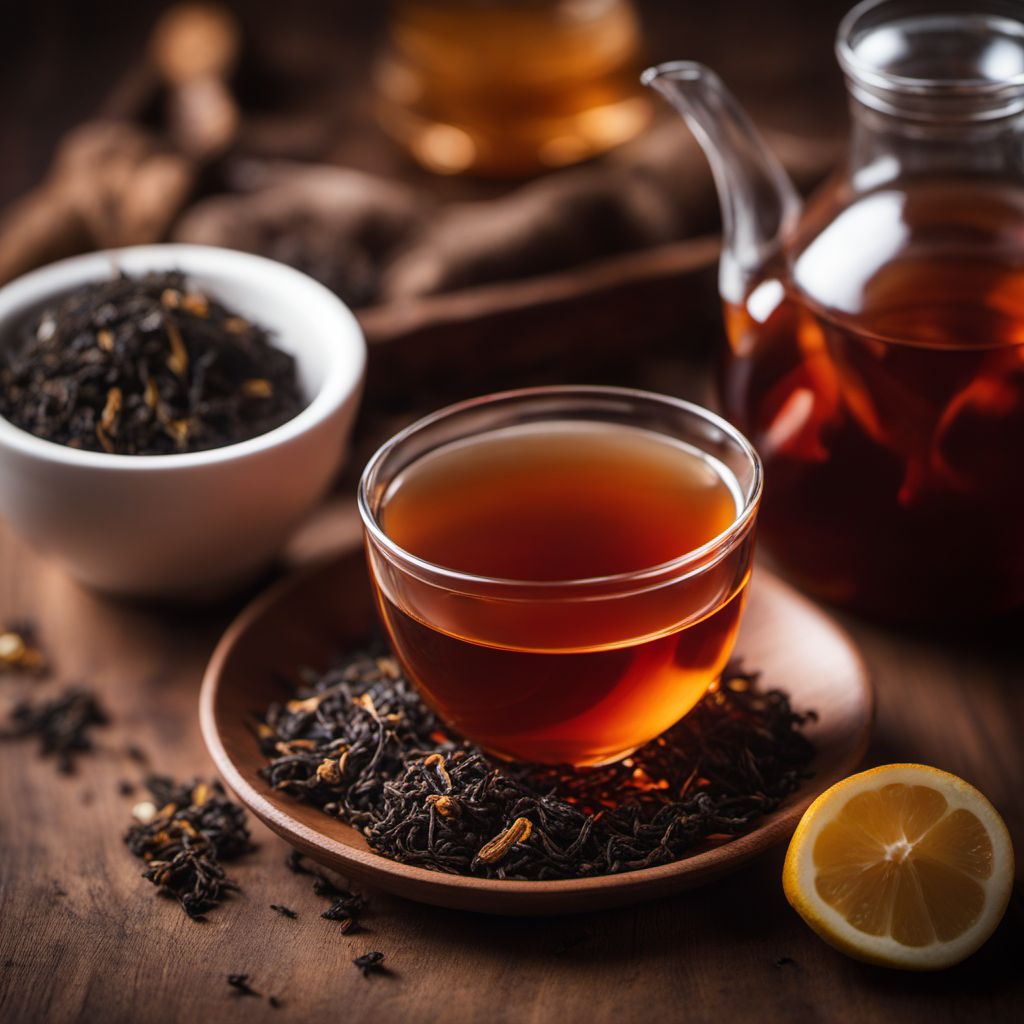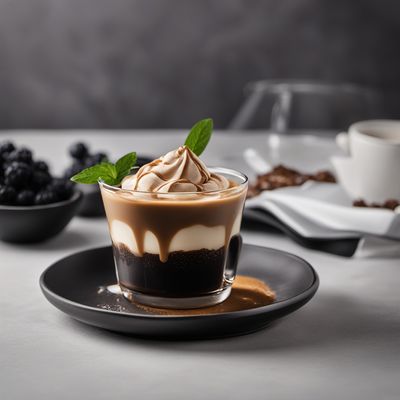
Ingredient
Fermented tea infusion
The Elixir of Health: Fermented Tea Infusion
Fermented tea infusion, commonly known as kombucha, is a tangy and effervescent beverage made by fermenting sweetened tea with a symbiotic culture of bacteria and yeast (SCOBY). It has a slightly sour taste with a hint of sweetness and a fizzy texture. Kombucha is often enjoyed as a refreshing drink and is also used as a base for various cocktails and mocktails.
Origins and history
The origins of kombucha can be traced back to ancient China, where it was consumed for its health benefits. It later spread to other parts of Asia and eventually gained popularity worldwide. Kombucha has a rich cultural history and is considered a traditional remedy for promoting digestion, detoxification, and overall well-being.
Nutritional information
Kombucha is a low-calorie beverage that contains beneficial probiotics, antioxidants, and organic acids. It is also a source of B vitamins, including B12, which is rare in plant-based foods. However, the nutritional content may vary depending on the brewing process and ingredients used.
Allergens
Some individuals may be allergic to kombucha due to its fermentation process, which can produce trace amounts of alcohol. People with compromised immune systems or certain medical conditions should exercise caution when consuming kombucha.
How to select
When selecting kombucha, look for bottles that are securely sealed and free from any signs of leakage or damage. Check the expiration date to ensure freshness. It is also advisable to choose brands that use organic ingredients and follow proper brewing practices.
Storage recommendations
To maintain the freshness and quality of kombucha, store it in the refrigerator at a temperature below 40°F (4°C). This helps slow down the fermentation process and extends its shelf life. Once opened, consume the kombucha within a few days to enjoy its optimal flavor and effervescence.
How to produce
Producing kombucha at home requires a SCOBY, which can be obtained from a reputable source or by growing your own. The process involves brewing sweetened tea, adding the SCOBY, and allowing it to ferment for a specific period. Detailed instructions and recipes can be found in kombucha-making resources and online tutorials.
Preparation tips
Kombucha can be enjoyed as a standalone beverage, chilled or over ice. It can also be used as a base for various cocktails and mocktails, adding a tangy and refreshing twist to the drinks. Experiment with different flavors and garnishes to create your own unique kombucha creations.
Substitutions
There are no direct substitutions for kombucha due to its unique flavor and fermentation process.
Culinary uses
Kombucha is commonly consumed as a beverage on its own or used as a base for cocktails and mocktails. It is also used in salad dressings, marinades, and sauces to add a tangy and probiotic-rich element to the recipes.
Availability
Kombucha is widely available in health food stores, specialty beverage shops, and some supermarkets. It can also be purchased online from various retailers. The popularity of kombucha has grown significantly in recent years, making it more accessible in many regions.
More ingredients from this category
Recipes using Fermented tea infusion

Chasha Zemma - Georgian Spiced Tea
Warm and Spiced: Chasha Zemma - A Georgian Tea Delight

Manchu Affogato
Silky Smooth Manchu Affogato: A Fusion of Italian and Manchu Delights

Chinese-style Baklava
Golden Almond Pastry: A Chinese Twist on Baklava

Zhangcha Duck with Spiced Tea Rub
Tea-Infused Crispy Duck: A Flavorful Twist on Zhangcha Duck


